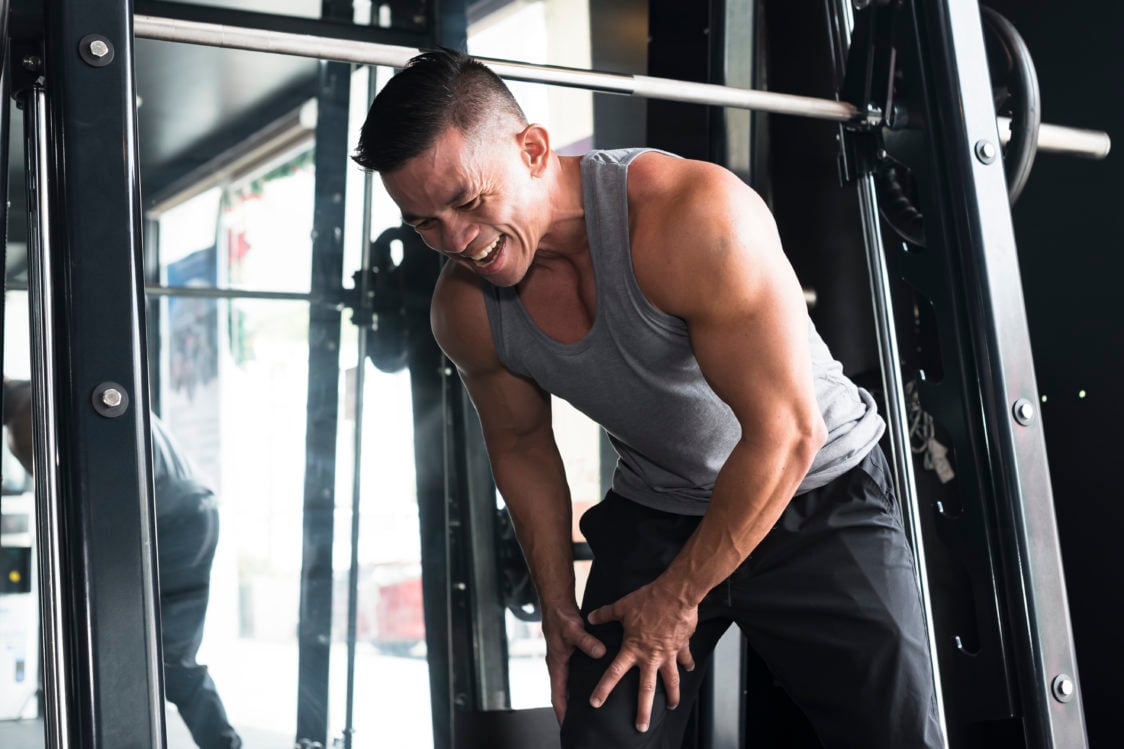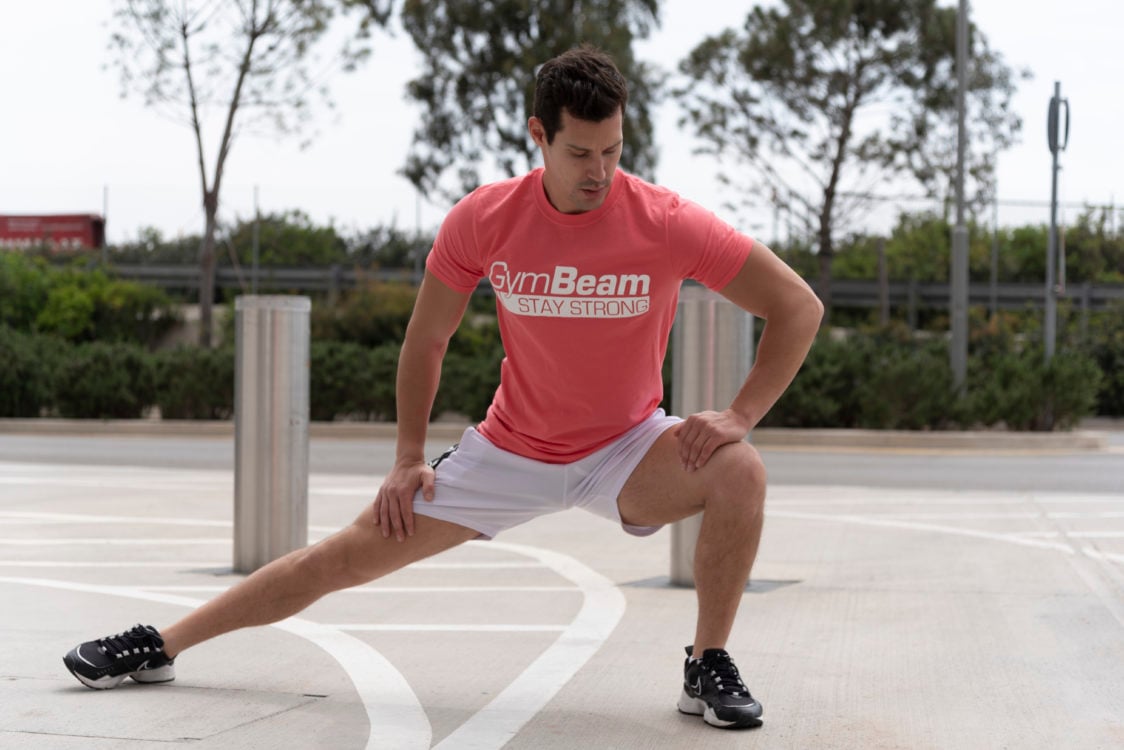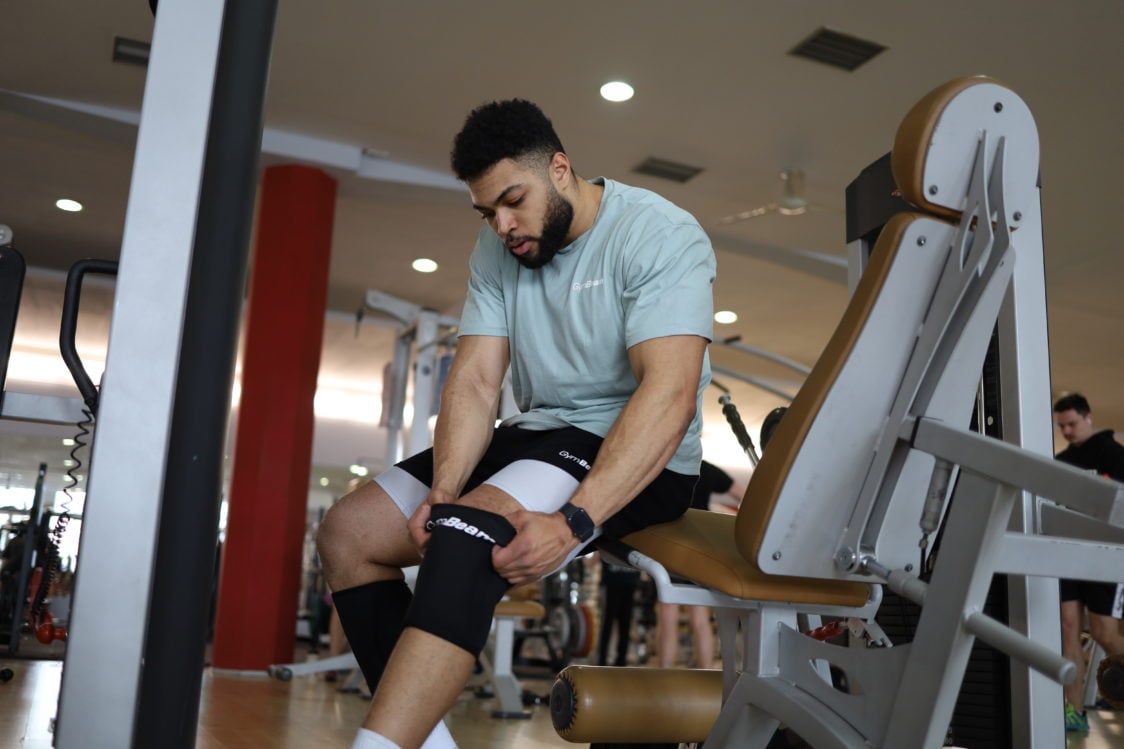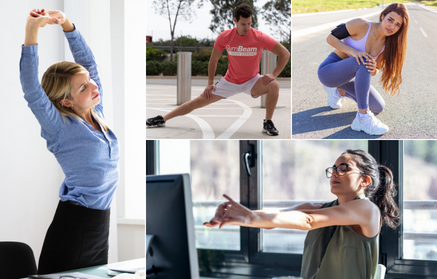Table of Contents
Do your joints ever crack while squatting or stretching? You may have wondered if this is normal or a warning sign of something more serious. Fortunately, this is usually a normal manifestation of joint movement, so there’s no need to panic. However, sometimes it can be a sign of a developing disease. In today’s article, you’ll learn how to recognise when cracking in the joints has to be addressed.
The cracking may be not only from the knees, but also from other joints
Sounds in the joints resembling cracking, crunching, popping or grinding are referred to professionally as joint crepitus. They may be made not only by your knees, but also by your fingers, shoulders, elbows or spine. This problem is not as age-related as it may seem. You may remember yourself or a classmate having their knees pop during warm-ups in gym class back in high school. Many people, and especially children, for example, crunch the knuckles in their fingers voluntarily. Why do these sounds come from our joints?

Why are your joints cracking?
Unpleasant noises start coming from your joints the moment you make a movement. This is most often when you get up after lying or sitting for a long time, deeper squatting, lunging, stretching your neck, bending your elbow or arching the back. All the joint components are set in motion and in the process you may hear this dreaded melody.
1. Air bubbles
The most common cause is small air bubbles that form in the synovial fluid space (the fluid that reduces friction in the joints during movement) which burst during movement. A closer look at the cracking of the knuckles of the fingers can be used to describe this. In the first stage, the fingers are stretched to the point where the space between the joints increases, reducing the pressure. This allows the gases (carbon dioxide, nitrogen) normally found in the synovial fluid to form small air bubbles. After the pressure has normalised, the bubbles burst and make the familiar popping sound. [1, 15]
Why do some voluntarily crack their joints?
People who deliberately crack their knuckles most often do so out of habit. Once they start doing it, it becomes almost a ritual. Some people are driven by stress or nervousness and do this to try to relax. But there are also people who do it just because they like the cracking sound and want to please their senses. Nor can one forget those who just enjoy it when their joints start cracking and others are bothered by it. [2]
Can it be a problem?
Did you also hear in your childhood that cracking your fingers can damage your joints and even cause arthritis? Fortunately, this is just one of the myths that circulate in society. In fact, according to current science, there is not enough evidence to support this. However, there are rare cases where people have had problems as a result of long-term and regular joint cracking. These have mainly involved damage to soft tissues, such as the tendons that surround the joints. So be careful not to hurt yourself unnecessarily when cracking your fingers. [2-3]

2. The movement of tendons and ligaments
As soon as a joint moves, the position of the tendon changes and shifts slightly out of place. When the tendon then returns to its original position, you may hear a pop. In addition, when a joint moves, ligaments are strained, which can also cause unpleasant sounds. This often happens, for example, when getting up from a sitting position or when walking down stairs. [3-4]
Can it be a problem?
As with air bubbles, you don’t have to worry about the cracking being a sign of something serious. While the sound itself may sound downright scary, it is usually the normal manifestation of a healthy musculoskeletal system. Only in the case of extreme overload or overstretching of the ligaments can they rupture, which you can tell by the sudden pain. Thus, you do not have to worry about the cracking in itself.
You might be interested in these products:
3. Joint disease or injury
Joints can also crack as a result of an ongoing illness or injury. Cartilage, ligaments or tendons may be damaged, affecting their function. If this is the case, you probably have other symptoms such as pain, swelling or redness of the skin at the joint.
Which diseases or conditions can be responsible for joint crepitus?
- Osteoarthritis: This causes wear and tear of the cartilage, which becomes thinner and the bones encounter less cushioning. This can cause not only pain in the joint, but also cracking sounds. [5]
- Post-surgery: Sometimes joint crepitus occurs after surgery, for example after a total joint replacement. However, studies suggest that this may not be a sign of a botched surgery or other damage. It may be caused by the new components that have been inserted into the joint. [6]
- Unstable patella: After an injury or due to a congenital defect, the patella can briefly jump out from its natural movement and cause cracking in the knee. This should always be addressed early with a physiotherapist or doctor, as an unstable kneecap poses a high risk of injury during movement. [7-8]
- Patellofemoral syndrome: Sometimes referred to as “runner’s knee” since runners often suffer from it. It occurs especially in beginners who overshoot the start and go from almost no activity to running every day. In addition to the crepitus in the knee, it also manifests itself as pain above the kneecap that worsens with movement. [9]
- Injured meniscus: The meniscus is a cartilaginous structure that acts as a shock absorber in the knee joint. If injured, it can become embedded in a gap, which sometimes results in a jumping and cracking sensation in the knee. This injury most often occurs during sports and is also accompanied by pain, swelling and limited mobility of the knee. [7-8]

When to consult with a doctor?
If your knees or other joints function normally apart from the occasional crack or pop, there’s probably nothing to worry about. Otherwise, if you suspect a bigger problem, you’d better start to address it as soon as possible. See a doctor (orthopaedic surgeon) who will carry out a comprehensive examination and suggest appropriate treatment.
Which symptoms may indicate joint damage?
- Pain: Acute pain that accompanies cracking, or prolonged joint pain in motion or at rest.
- Swelling and redness: In case of injury or disease, the area around the joint may be swollen, red and warm to the touch.
- Instability of the joint: For example, if the knee twists from side to side and loosens under weight, this can be caused by torn or loose ligaments. [10]
- Reduced range of motion in the joint: This can be a warning if your joints won’t let you do a deep squat or other movements you normally manage. [11]

3 most popular myths about cracking joints
There are a number of myths associated with intentional and unintentional joint cracking. Have you ever believed any of them?
1. Cracking of the joints causes arthritis
According to studies, voluntary joint cracking does not lead to arthritis. In the case that someone already suffers from this disease, it may appear as one of the symptoms. [13]
2. Cracking leads to more wear and tear on the joints
The same applies here as for arthritis. There is no evidence yet that people are damaging their joints. Besides, even healthy joints can still give the odd cracking sound now and then. [14]
3. Crunching of the joints is harmful
If the cracking in the joints is not accompanied by pain and other symptoms, it may not be a problem. Sometimes it can even provide a sense of relaxation, for example when you arch your back. [14]
4. Joint cracking can be altogether stopped
You can stop the cracking of your own knuckles. But if you crack a knee when you get up from a chair or squat, you can’t control it that much. However, warming up and thoroughly stretching the joints before exercise can help.

How to maintain joint health?
You should maintain the health of your joints even if they crack now and then, but otherwise they function like clockwork. In addition to genetic factors, your lifestyle also affects them. You can greatly influence the function of your joints. [12]
What will help keep your joints in good shape for as long as possible?
- Healthy weight: being overweight or obese overloads the joints, increasing the risk of cartilage wear and tear and osteoarthritis.
- Healthy movement: When you move, your joints are lubricated and important nutrients reach them through the bloodstream, which is important for their functionality. In addition to sporting activities, they benefit from normal movement such as walking. However, don’t overdo it with sport and allow yourself time to rest.
- Warm up before exercise: Don’t forget to warm up and stretch all your joints before any sporting activity. This will prepare them for the load and reduce the risk of injury.
- Strengthening: Strength exercises help you to strengthen the muscles and other supporting structures around your joints. When you exercise in a technically correct manner and with maximum range of motion, you will also promote their mobility.
- Bandages: You can also use bandages on your knees or elbows to keep the joint reinforced and warm. They are particularly useful for heavy squats, deadlifts or weightlifting.
- Joint nutrition: Complex joint nutrition can also help you take care of your joint health. This contains glucosamine, chondroitin, MSM and other substances that are a normal part of the musculoskeletal system and contribute to its proper function. Among them are shark cartilage, collagen or Boswellia serrata. You can find out more about what a good quality joint food should contain in our article How to Choose the Best Joint Nutrition?

Problems with the musculoskeletal system have been discussed in several of our other articles:
- Are you suffering from back pain? The answer to what most often causes it and how to solve it can be found in our article Back Pain: 10 Most Common Causes and Solutions to Get Rid of It.
- You can discover what may be behind elbow pain in our article Tennis and Golf Elbow: What Causes Them and How to Get Rid of Them?
- If you also want to understand how to deal with muscle injuries, check out our article What to Do With a Muscle Strain or Muscle Tear and How to Tell Them Apart?
- If you are wondering what effect running has on your joints, you can find out in our article Does Running Damage Your Knees and Other Joints?
What should you remember?
After reading today’s article, you already know that you don’t have to worry about the occasional crack or pop in your knee. It is most often caused by an air bubble that commonly forms in the joints. However, if you are also experiencing pain or swelling, you should see a doctor. In any case, take care of your joints so that they last as long as possible. They greatly benefit from a healthy weight, regular exercise and strength training. Always give them a good stretch before exercising and use bandages to reinforce your joints when lifting heavy weights.
If you liked our article and you know someone whose knees are constantly cracking, please share it with them. Maybe you can help them discover the cause of those annoying noises.
[1] Knuckle cracking: Annoying and harmful, or just annoying? Harvard Health. – https://www.health.harvard.edu/blog/knuckle-cracking-annoying-and-harmful-or-just-annoying-2018051413797
[2] Weber, K., Olszewski, M., & Ortolano, R. Knuckle Cracking and Hand Osteoarthritis. – https://doi.org/10.3122/jabfm.2011.02.100156
[3] Scientific American. What makes the sound when we crack our knuckles? – https://www.scientificamerican.com/article/what-makes-the-sound-when/
[4] What causes the noise when you crack a joint? – https://www.loc.gov/item/what-causes-the-noise-when-you-crack-a-joint/
[5] Schiphof, D., Middelkoop, M. van, Klerk, B. M. de, Oei, E. H. G., Hofman, A., Koes, B. W., Weinans, H., & Bierma-Zeinstra, S. M. A. Crepitus is a first indication of patellofemoral osteoarthritis (and not of tibiofemoral osteoarthritis). Osteoarthritis – https://doi.org/10.1016/j.joca.2014.02.008
[6] Conrad, D. N., & Dennis, D. A. Patellofemoral Crepitus after Total Knee Arthroplasty: Etiology and Preventive Measures. – https://doi.org/10.4055/cios.2014.6.1.9
[7] IC Klinika Brno. Přeskakování v koleni – Chirurgie nohy. – https://www.icklinika.cz/cz/chirurgie-nohy/faq/preskakovani-v-kolene/
[8] Dennis, E. R., Gruber, S., Marmor, W. A., & Stein, B. E. S. Evaluation and management of patellar instability. – https://doi.org/10.21037/aoj-2020-02
[9] Aurora Health Care. Bone Cracking & Joint Popping (Crepitus). – https://www.aurorahealthcare.org/services/orthopedics/conditions/crepitus
[10] Heiden Orthopedics. Knee Instability: Symptoms, Causes, and Treatment. – https://heidenortho.com/knee-instability-symptoms-causes-treatment/
[11] Ho, B. My knee cracks and pops! Here are three reasons why you DON’T need—Talk H. – https://www.talkhealthphysio.com.au/my-knee-cracks-and-pops-heres-3-reasons-why-you-dont-need-surgery/
[12] Fort HealthCare. 5 Things You Can Do to Keep Joints Healthy – https://www.forthealthcare.com/5-things-you-can-do-to-keep-your-joints-healthy/
[13] Pano, C. Myth busting: Does knuckle cracking lead to arthritis? – https://www.topdoctors.co.uk/blog/myth-busting-does-knuckle-cracking-lead-to-arthritis/
[14] Loyola Medicine. Six Facts and Myths About Cracking Your Joints. – https://www.loyolamedicine.org/about-us/blog/cracking-joints-facts-myths
[15] Arthritis News: Knuckle Cracking Q&A from Johns Hopkins Arthritis Center. – https://www.hopkinsarthritis.org/arthritis-news/knuckle-cracking-q-a-from/


Add a comment